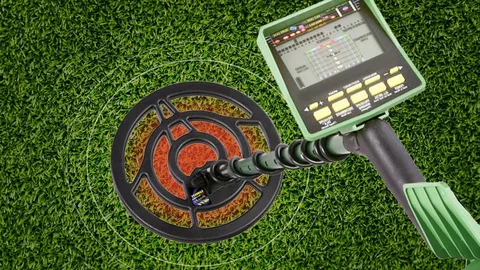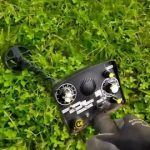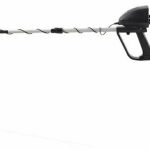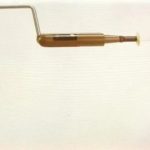Are you in search of buried treasures waiting to be unearthed? With the modern technology of a gold detector, you can now uncover hidden gold and precious metals with ease. In this article, we will explore the best gold detector options available to help you find the perfect one for your treasure hunting adventures. Whether you’re a beginner or a seasoned prospector, finding the right gold detector can make all the difference in your search for valuable treasures.
“Uncovering Hidden Treasure: The Best Gold Detector for You” provides comprehensive information on selecting the right gold detector for your needs. It covers various features to consider, such as sensitivity, discrimination, ground balance, and frequency. The guide also includes reviews of top-rated gold detectors on the market, along with tips for maximizing their performance. Whether you’re a beginner or experienced prospector, this resource will help you make an informed decision when investing in a gold detector.
The Best Gold Detector Technology for Hobbyists and Professionals
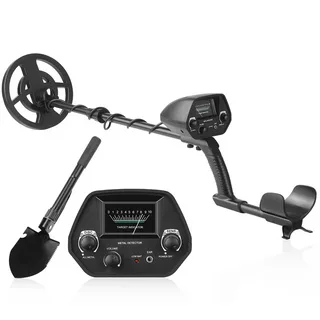
When it comes to gold prospecting, having the right equipment can make all the difference. A reliable gold detector is an essential tool for hobbyists and professionals alike. These devices are designed to detect even the smallest traces of gold, making them invaluable for treasure hunters and prospectors. By using a gold detector, individuals can increase their chances of finding gold nuggets, jewelry, and other valuable items hidden beneath the surface. Whether you’re planning a recreational treasure hunt or serious prospecting expedition, a quality gold detector can greatly enhance your success.
The best gold detectors for hobbyists and professionals utilize advanced technologies such as pulse induction (PI) and very low frequency (VLF) to accurately detect gold and other precious metals. These detectors are designed to provide high sensitivity and depth detection, allowing users to locate gold nuggets, coins, and relics with precision. Additionally, many modern gold detectors feature adjustable settings and ground balance controls to adapt to different soil types and mineralization levels, making them versatile tools for various detecting environments. Some popular models also integrate GPS and wireless connectivity for added convenience and functionality. Overall, the best gold detector technology for hobbyists and professionals offers reliable performance and advanced features to enhance the metal detecting experience.
How to Choose the Right Gold Detector for Your Needs

When choosing a gold detector, consider the following factors:
1. Sensitivity: Look for a gold detector with high sensitivity to small gold nuggets and flakes.
2. Ground Balance: Choose a detector with adjustable ground balance to compensate for mineralized soil and improve target identification.
3. Frequency: Multi-frequency detectors are ideal for detecting a wide range of gold sizes and depths. Higher frequencies are better for smaller gold, while lower frequencies are better for larger nuggets.
4. Coil Size and Type: Consider the size and type of coil that best suits your detecting needs. Smaller coils are better for tight spaces and targeting smaller gold, while larger coils cover more ground and are better for deeper targets.
5. Weight and Ergonomics: Choose a detector that is comfortable to carry and maneuver, especially if you plan to use it for extended periods.
6. Price: Set a budget and compare detectors within your price range. Keep in mind that more expensive detectors often come with advanced features and higher sensitivity.
7. User-Friendly Features: Look for detectors with easy-to-use controls, clear displays, and helpful features such as target ID and depth indicators.
By considering these factors, you can choose a gold detector that best suits your detecting needs and budget. Be sure to read reviews and consider seeking advice from experienced detectorists to help inform your decision.
The Benefits of Using a Gold Detector for Treasure Hunting

Using a gold detector for treasure hunting offers several benefits. Firstly, it allows for efficient and accurate detection of gold and other valuable metals, saving time and effort in the search for treasure. Additionally, gold detectors are designed to ignore common trash items and focus exclusively on valuable targets, minimizing false alarms and potential frustration for the user. Furthermore, modern gold detectors often come equipped with advanced features such as adjustable sensitivity levels, discrimination settings, and target pinpointing capabilities, enabling users to fine-tune their searches and maximize their chances of finding valuable treasure. Ultimately, utilizing a gold detector can greatly enhance the overall experience of treasure hunting and increase the likelihood of making exciting and rewarding discoveries.
Top 5 Gold Detectors on the Market: A Comprehensive Review
See also: gold detector price
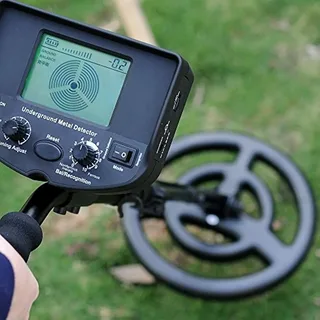
1. Minelab GPZ 7000: This is one of the most advanced gold detectors on the market, featuring cutting-edge technology such as Minelab’s Zero Voltage Transmission (ZVT) and super-D search coil. Its high sensitivity and depth range make it a top choice for serious gold prospectors.
2. Garrett ATX: The Garrett ATX is a versatile gold detector that can be used in both land and water environments. It features advanced pulse induction technology for increased depth and sensitivity, making it a popular choice for underwater gold hunting.
3. Fisher Gold Bug Pro: The Fisher Gold Bug Pro is a lightweight and easy-to-use gold detector that is suitable for beginners and experienced prospectors alike. It offers high sensitivity to small gold nuggets and has a large LCD screen for easy target identification.
4. Nokta Makro Gold Kruzer: The Nokta Makro Gold Kruzer is known for its high performance in highly mineralized soil, making it ideal for gold hunting in challenging terrains. It features multiple search modes and adjustable settings for customized gold detecting experiences.
5. White’s Goldmaster 24K: The White’s Goldmaster 24K is a versatile gold detector with a wide range of features, including automatic ground balance, adjustable frequency, and a large backlit display. It is designed to locate gold nuggets of all sizes in various soil conditions.
Maximizing Your Gold Prospecting Success with a Quality Detector
A quality gold prospecting detector is essential for maximizing your success in finding gold. These detectors are designed to specifically target and identify gold nuggets, making your prospecting efforts much more efficient. Look for detectors with advanced features such as increased sensitivity, discrimination capabilities, and ground balance adjustability to help you hone in on gold-rich areas. Additionally, consider the size and weight of the detector, as well as the durability of its construction to ensure it can withstand the rugged conditions of prospecting. Investing in a quality detector will greatly improve your chances of finding gold and ultimately enhance your overall prospecting experience.
Understanding the Different Types of Gold Detectors Available
There are several different types of gold detectors available on the market, each with its own unique features and benefits.
1. VLF Detectors: Very Low Frequency (VLF) detectors are the most common type of gold detectors. They work by emitting a low-frequency magnetic field and detecting any disruptions in the field caused by metallic objects, including gold.
2. PI Detectors: Pulse Induction (PI) detectors are specialized for finding gold in highly mineralized ground. They send short bursts of energy into the ground and then measure the time it takes for the signal to return. This allows them to ignore most mineralization and detect deeper targets.
3. Beat Frequency Oscillation (BFO) Detectors: BFO detectors are the simplest and least expensive type of gold detectors. They work by using two coils to create a magnetic field. When metal objects, including gold, come into contact with the magnetic field, it causes a change in frequency that can be detected.
4. Multi-Frequency Detectors: These detectors use multiple frequencies simultaneously to improve target ID and provide better discrimination in mineralized soil.
Each type of gold detector has its own advantages and limitations, so it’s important to consider the specific needs and conditions of your gold prospecting activities before choosing the right detector for you.
Gold Detectors 101: A Beginner’s Guide to Finding Hidden Treasures
Gold Detectors 101: A Beginner’s Guide to Finding Hidden Treasures is a comprehensive book that covers everything a beginner needs to know about using gold detectors. The book includes information on the basics of gold prospecting, how to choose the right gold detector for your needs, understanding different types of gold detectors, and practical tips for finding gold in various environments. The book also covers essential topics such as how to properly use a gold detector, interpreting signals, and understanding the geological factors that influence gold deposition. Whether you’re a novice or an experienced treasure hunter, this guide provides practical and valuable information to help you get started on your quest for hidden treasures.
Uncovering the History of Gold Detectors and Their Evolution
The history of gold detectors can be traced back to the late 19th century when the first metal detectors were invented. These early devices were primitive and were not specifically designed for finding gold. It wasn’t until the 1930s that the first gold-specific metal detectors were developed.
Over the years, gold detectors have evolved in terms of technology, capability, and portability. Modern gold detectors use advanced sensors and signal processing to detect even the smallest traces of gold deep underground or underwater. They also come in a variety of designs, from handheld units to larger, more specialized equipment for industrial mining operations.
The evolution of gold detectors has greatly impacted the gold mining industry, making it easier and more efficient to find and extract gold from the earth. Additionally, the widespread availability of gold detectors has also made recreational gold prospecting more accessible to hobbyists and enthusiasts. Overall, the history of gold detectors is one of continuous innovation and improvement, driven by the demand for more effective and reliable equipment in the pursuit of this precious metal.
Pros and Cons of Using a Gold Detector for Finding Treasure
Pros of using a gold detector for finding treasure:
1. Efficient: Gold detectors are designed to specifically detect gold and can accurately identify its presence, making the search process more efficient.
2. Targeted: Gold detectors allow users to focus their search on specific areas where gold is likely to be found, reducing the time and effort required for treasure hunting.
3. Increased chances of success: By using a specialized gold detector, treasure hunters can significantly increase their chances of finding gold or other valuable treasures.
Cons of using a gold detector for finding treasure:
1. Costly: High-quality gold detectors can be expensive, making them a significant investment for hobbyists or casual treasure hunters.
2. Limited usefulness: Gold detectors are specialized tools that are only effective for finding certain types of treasure, making them less versatile than other metal detectors.
3. Skill required: While gold detectors are designed to be user-friendly, they still require some skill and experience to use effectively, especially when it comes to interpreting signals and identifying potential targets.
Tips and Techniques for Using Your Gold Detector Effectively
When using a gold detector, it’s important to familiarize yourself with its settings and features. Start by reading the user manual and understanding how to adjust sensitivity, discrimination, and ground balance. Experiment with different settings to find the optimal combination for your specific detecting location.
It’s also crucial to ground balance your detector properly to ensure it can accurately detect gold. This involves adjusting the detector to account for mineralization in the soil, which can interfere with detection.
When searching for gold, be methodical in your approach. Scan slowly and systematically, covering the entire area in a grid pattern. Pay attention to any signals or changes in the detector’s readings, as this could indicate potential gold targets.
Additionally, consider using accessories such as headphones and digging tools to enhance your detecting experience. Headphones can help you better hear faint signals, while quality digging tools can make it easier to retrieve targets from the ground.
Finally, practice patience and persistence. Detecting for gold can be a challenging but rewarding activity, so don’t get discouraged if you don’t find anything immediately. With time and experience, you’ll become more adept at using your gold detector effectively.




